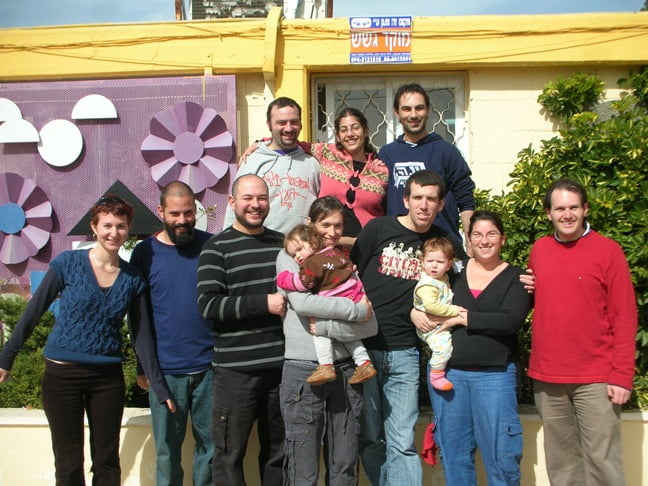Israel is famous for its “kibbutzim,” collective communities traditionally based on agriculture where members share everything and almost nothing is owned by anyone. The first kibbutzim are sometimes said to be the only successful examples of communist societies in history. But the popularity of these communes has steadfastly decreased as the Israeli economy grew exponentially over the past few decades.
Some Israelis have now decided that living an urban life does not preclude them from applying pure socialist beliefs and created what they call “urban kibbutzim” – families in large Israeli cities living under one roof and sharing all their earnings.
One such commune – “Kvutsa Yovel” – is part of an urban community based in Migdal HaEmek and Nazzareth Illit, cities in the north of Israel.
Emily Bock, a 28-year-old Australian who moved to Israel in 2005, dreamt of combining her love of Israel with a socialist lifestyle. In 2008, Bock joined Kvutsa Yovel.
“Everyone believes in equality, but no one really practices it completely,” Bock told NoCamels. “Our kvutsa, meaning group, is composed of 11 individuals who share everything. In short, it’s like getting married to 10 other people!” Bock said.
Bock’s group is part of a larger network of other urban kibbutzim, whose aim it is to stay connected to the traditional movement of the past, while meeting the challenges of Israel’s capitalist society today.
Bock is eager to point out the differences between the type of society in which she lives and the ideals of communism, however: “Take what you need, and give what you can – that’s how I define my socialist way of living, as opposed to communism, where the individual cannot choose; is forced to give, and does not necessarily get what he needs.”
Sign up for our free weekly newsletter
SubscribeThe members of the kvutsa have a shared bank account and anyone in the group can access it at any time, “which constantly reminds us of everyone else in the kvutsa,” Bock explained.
Urban kibbutzim place the highest importance on meetings between members of the commune, which can takes place at various levels – personal one-on-one meetings, or more formal weekly meetings with all members in order to deal with pressing issues.
Part of the ideal of groups such as Kvutsa Yovel is also to be regularly involved in a wide range of social activities. Bock and her group organize seminars on equality in schools, works with rebellious teenagers and African refugees. But all members of the kvutsa also have “normal” jobs in the popular Israeli high-tech field or education, for example.
So what happens if one person earns more money than others in the kvutsa – does he/she still have to share? “It really doesn’t matter,” said Bock “we share everything.”
“Hopefully more people will come to realize the importance of caring for their neighbors in a real way and not just in a pretend way,” she added.
Related posts

Rehabilitation Nation: Israeli Innovation On Road To Healing

Israeli High-Tech Sector 'Still Good' Despite Year Of War





Facebook comments